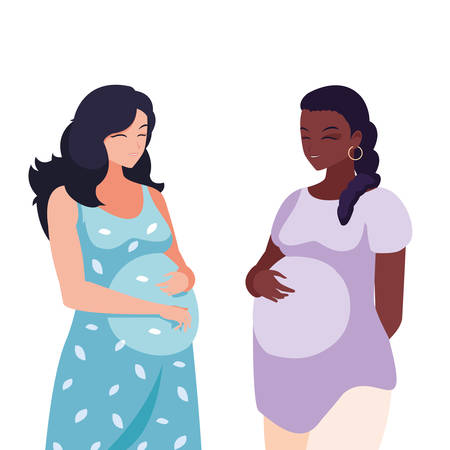Overview of Postnatal Care in the UK
Postnatal care in the UK is designed to provide comprehensive support for new mothers, babies, and families during the crucial weeks and months following childbirth. This period is recognised as a vital time for physical recovery, emotional adjustment, and early infant development. The UKs approach to postnatal care emphasises holistic wellbeing, ensuring that families receive both medical and practical support tailored to their unique needs.
The range of postnatal support services available across the UK reflects a commitment to inclusive and accessible care. These services are delivered through a combination of NHS provisions, private sector options, and valuable community-based initiatives. The principles underpinning postnatal care focus on safety, informed choice, and continuity of care—ensuring every family feels supported from hospital discharge through to the first few months at home.
Key Principles of Postnatal Support
| Principle | Description |
|---|---|
| Holistic Wellbeing | Addressing physical health, mental health, nutrition, and social needs. |
| Accessibility | Ensuring all families can access support regardless of location or background. |
| Continuity of Care | Smooth transition from maternity services to community-based care. |
| Family-Centred Approach | Support tailored not just to mothers but the whole family unit. |
| Evidence-Based Practice | Care rooted in current research and national guidelines (e.g., NICE). |
Understanding these core values helps new parents navigate the broad spectrum of support available—from essential NHS postnatal checks to local peer groups and specialist private practitioners. As we explore these options in detail, it’s important to recognise that postnatal care in the UK aims to nurture both mother and baby, laying strong foundations for lifelong health and wellbeing.
NHS Postnatal Services
The National Health Service (NHS) in the UK provides a comprehensive framework of postnatal care, ensuring mothers and their newborns receive essential health support during the first crucial weeks after birth. NHS postnatal services are free at the point of use and focus on both physical and emotional wellbeing for new families.
Standard NHS Postnatal Care
All mothers are entitled to routine postnatal care delivered by trained professionals, including midwives and health visitors. The standard package typically includes:
| Service | Description |
|---|---|
| Midwife Home Visits | Regular visits at home for up to 10 days post-birth to monitor recovery, offer breastfeeding support, and check baby’s progress. |
| Health Visitor Services | A health visitor will take over once midwife care ends, providing advice on feeding, sleep routines, and maternal mental health until your child is five years old. |
| Routine Assessments | Physical checks for mother and baby, screening for conditions like jaundice in infants or signs of infection in mothers. |
Accessing NHS Postnatal Services
NHS postnatal care begins immediately after delivery—whether in hospital or at home. Your maternity unit or midwife will arrange your first few appointments, often before you leave hospital. If you have concerns or require additional help, you can contact your local GP surgery or the community midwifery team directly.
Typical Appointment Schedule
| Timing | Who Provides Care | Main Focus |
|---|---|---|
| Within 24 hours of birth | Midwife | Initial assessment and support with feeding |
| Day 5–10 post-birth | Midwife | Newborn blood spot test, weight check, maternal health review |
| After day 10 to 2 weeks | Health Visitor | Transition from midwife to health visitor; continued infant and maternal wellbeing checks |
What Support Can Mothers Expect?
Mothers can expect practical guidance on topics such as wound healing (after vaginal or caesarean birth), emotional support for issues like “baby blues” or postnatal depression, infant feeding (including breastfeeding and formula options), safe sleep practices, and immunisation information. For further concerns, referral pathways are available for specialist support via the NHS system. This holistic approach helps ensure both mother and baby thrive during the early stages of family life.

3. Private Postnatal Care Options
For families who wish to access more personalised or specialised postnatal support, the UK offers a variety of private healthcare services outside the NHS. These options can complement public care or provide a tailored approach, depending on individual needs and preferences.
Types of Private Postnatal Services
| Service Type | Description | Typical Cost Range | Accessibility |
|---|---|---|---|
| Lactation Consultants | Certified professionals offering expert advice and hands-on support for breastfeeding challenges and infant feeding concerns. | £60–£120 per session | Available via home visits, private clinics, or virtual consultations across most regions. |
| Private Midwives | Registered midwives providing antenatal, birth, and postnatal care with a focus on continuity and individualised attention. | £2,000–£5,000 (comprehensive packages) | Mainly in urban areas, though some travel to rural locations; may offer flexible appointment times. |
| Doula Support | Non-medical professionals offering emotional, practical, and informational support during the postnatal period. | £15–£30 per hour or £300–£1,200 for packages | Doulas are found throughout the UK; services can be arranged directly or through agencies. |
| Specialist Clinics | Clinics focusing on newborn care, maternal mental health, physiotherapy, nutrition advice, or sleep consultancy. | Varies by service; typically £50–£150 per appointment | Mostly located in cities; some offer remote appointments nationwide. |
Benefits of Choosing Private Postnatal Support
- Bespoke Care: Families receive one-to-one guidance tailored to their unique circumstances and preferences.
- Shorter Wait Times: Appointments are often available at short notice and at convenient times, including evenings or weekends.
- Continuity: Consistent contact with the same practitioner fosters trust and better understanding of family needs.
- Diverse Expertise: Access to specialists not always available through the NHS, such as tongue-tie practitioners or holistic therapists.
Considerations for Private Care Users
While private postnatal services offer flexibility and customisation, they may not be financially accessible for every family. It’s important to research credentials—ensure all providers are appropriately registered (e.g., International Board Certified Lactation Consultants (IBCLC), Nursing & Midwifery Council (NMC) registration for midwives). Some health insurance policies may cover aspects of private care, so it’s worthwhile checking your policy details. Ultimately, private options can be an empowering choice for those seeking an enhanced level of postnatal support alongside or beyond what is provided by the NHS.
4. Community and Voluntary Support Networks
Community and voluntary support networks play a vital role in enhancing postnatal wellbeing across the UK. These networks offer practical, emotional, and social assistance to new parents beyond what is typically available through NHS or private healthcare services.
Local Community Groups
Many neighbourhoods host local baby and toddler groups, breastfeeding cafes, and parent meet-ups. These informal gatherings give new parents the chance to share experiences, seek advice, and reduce feelings of isolation—especially valuable for those without nearby family support.
National Charities
Several national charities provide structured support and resources for families during the postnatal period. Notable examples include:
| Name | Description | Support Offered |
|---|---|---|
| NCT (National Childbirth Trust) | The UK’s leading charity for parents, with branches nationwide. | Postnatal classes, drop-in sessions, online forums, helplines, and peer support. |
| Home-Start UK | A charity supporting families with young children through trained local volunteers. | Home visits, emotional support, practical help, and group activities for parents facing challenges. |
Peer Support Networks
Peer-to-peer support has gained recognition as an effective way to promote mental health after childbirth. Parents who have experienced similar challenges offer understanding and reassurance through both formal schemes (such as trained peer mentors) and informal WhatsApp or Facebook groups. This sense of solidarity can be invaluable for building confidence in early parenthood.
Online Resources for New Parents
The digital landscape provides 24/7 access to reputable advice and supportive communities. Popular UK-based websites and forums include:
- Mumsnet: A leading online community for parenting advice and discussion.
- Netmums: Offers articles, chat boards, local listings, and expert Q&A sessions.
- PANDAS Foundation: Specialises in perinatal mental health support via helplines, online groups, and resources.
The Value of Social Connection
Engaging with community-led initiatives not only provides practical help but also fosters a sense of belonging—crucial for postnatal wellbeing. Whether attending a coffee morning at a local church hall or joining an online support group at midnight, these connections remind new parents that they are not alone on their journey.
5. Practical and Emotional Wellbeing Support
Recovering after childbirth involves much more than just physical healing. In the UK, a range of postnatal services focus on both practical recovery and emotional wellbeing, ensuring new parents feel supported as they adjust to life with their baby. These services are available through the NHS, private providers, and local community groups, making them accessible for families across different backgrounds.
Physical Recovery and Exercise Groups
Postnatal exercise is highly recommended by UK health professionals to support core strength, improve mood, and promote overall health after birth. Many NHS trusts offer specialist postnatal exercise classes, while private fitness studios often provide mum-and-baby sessions tailored to individual needs. These classes typically include gentle Pilates, yoga, or low-impact aerobic exercises designed specifically for postpartum bodies.
| Type of Support | NHS | Private Options | Community Groups |
|---|---|---|---|
| Exercise Classes | Yes (often free or low-cost) | Specialist studios, personal trainers | Mum-and-baby meetups in parks or halls |
| Nutritional Advice | Dietetics via GP referral or Health Visitor | Registered nutritionists/dietitians | Peer-led workshops or online forums |
| Mental Health Support | Perinatal mental health teams, counselling | Private therapy & support groups | PANDAS Foundation, NCT peer support |
Mental Health and Emotional Support Services
The emotional transition to parenthood can be challenging. The NHS provides access to perinatal mental health teams who support mothers experiencing issues like postnatal depression or anxiety. Local charities such as PANDAS Foundation and the National Childbirth Trust (NCT) also run support groups and helplines for new parents struggling with their mental health. Private counselling is widely available for those seeking more immediate or specialised help.
Nutritional Guidance for Long-Term Wellbeing
A balanced diet plays a crucial role in supporting both physical recovery and emotional stability postnatally. NHS Health Visitors can provide evidence-based nutritional advice tailored to breastfeeding mothers or those managing specific dietary needs. For more personalised support, registered nutritionists or dietitians (private or community-based) can offer guidance on sustaining energy levels, managing healthy weight loss, and supporting immune function during this critical period.
The Importance of Tailored Advice
No two families are alike; therefore, receiving tailored advice—whether it’s about exercise, nutrition, or mental health—is key for long-term wellbeing. By accessing the right mix of NHS resources, private services, and community groups, new parents in the UK can build a holistic postnatal care plan that addresses their unique needs and supports them on their parenting journey.
Accessing Support: Practical Steps and Resources
Navigating postnatal support services in the UK can feel overwhelming, but there are clear pathways to help new parents access the care they need. Whether you prefer NHS-funded options, private providers, or community-based support, understanding how to get started is essential for both your wellbeing and your baby’s healthy development.
How to Access Postnatal Care in the UK
| Support Type | How to Access | Key Features |
|---|---|---|
| NHS Services | Usually referred by your GP or midwife; some services allow self-referral via local NHS websites. | Free at point of use, integrated with wider health services, includes home visits and clinics. |
| Private Providers | Contact providers directly (e.g., through websites or phone). GPs may suggest reputable specialists. | Flexible appointments, personalised care, often quicker access but with associated costs. |
| Community & Voluntary Groups | Search online directories (like Netmums or NHS Choices), ask your Health Visitor, or join local Facebook groups. | Peer support, breastfeeding cafes, parent-baby groups, mental health workshops—often free or low-cost. |
| Helplines & Online Portals | Use national helplines (such as NCT or PANDAS Foundation) and NHS online tools for advice and signposting. | Immediate support, guidance on next steps, signposting to local services. |
Practical Tips for Choosing the Right Support
- Assess Your Needs: Are you seeking emotional support, practical advice on feeding, or physical health checks? Different services specialise in different areas.
- Check Availability: NHS services may have waiting lists; private care can offer quicker appointments but at a cost. Community groups may operate at set times each week.
- Consider Accessibility: Look for local options within easy reach or services that offer home visits if travel is difficult post-birth.
- Cultural Sensitivity: Some community groups cater to specific cultural backgrounds—ask your Health Visitor about tailored resources if needed.
- Read Reviews: Many parents share experiences online; forums like Mumsnet can provide insight into what to expect from various providers.
Useful Resources and Contacts
- NHS Pregnancy and Baby Guide
- NCT (National Childbirth Trust)
- PANDAS Foundation (Perinatal Mental Health)
- Your local council website – search for “family support services” or “children’s centres” in your area.
- Your GP surgery – ask about local postnatal clinics and specialist health visitors.
Final Thought: Personalised Support Matters
No two families are alike. Taking the time to explore your options—whether through the NHS, private sector, or supportive community networks—ensures you receive the care that suits your unique situation. Don’t hesitate to reach out early; timely support makes all the difference during the vital postnatal period.


